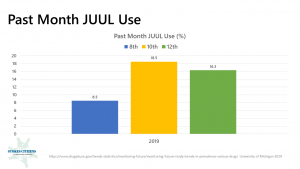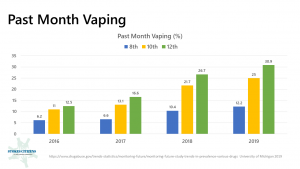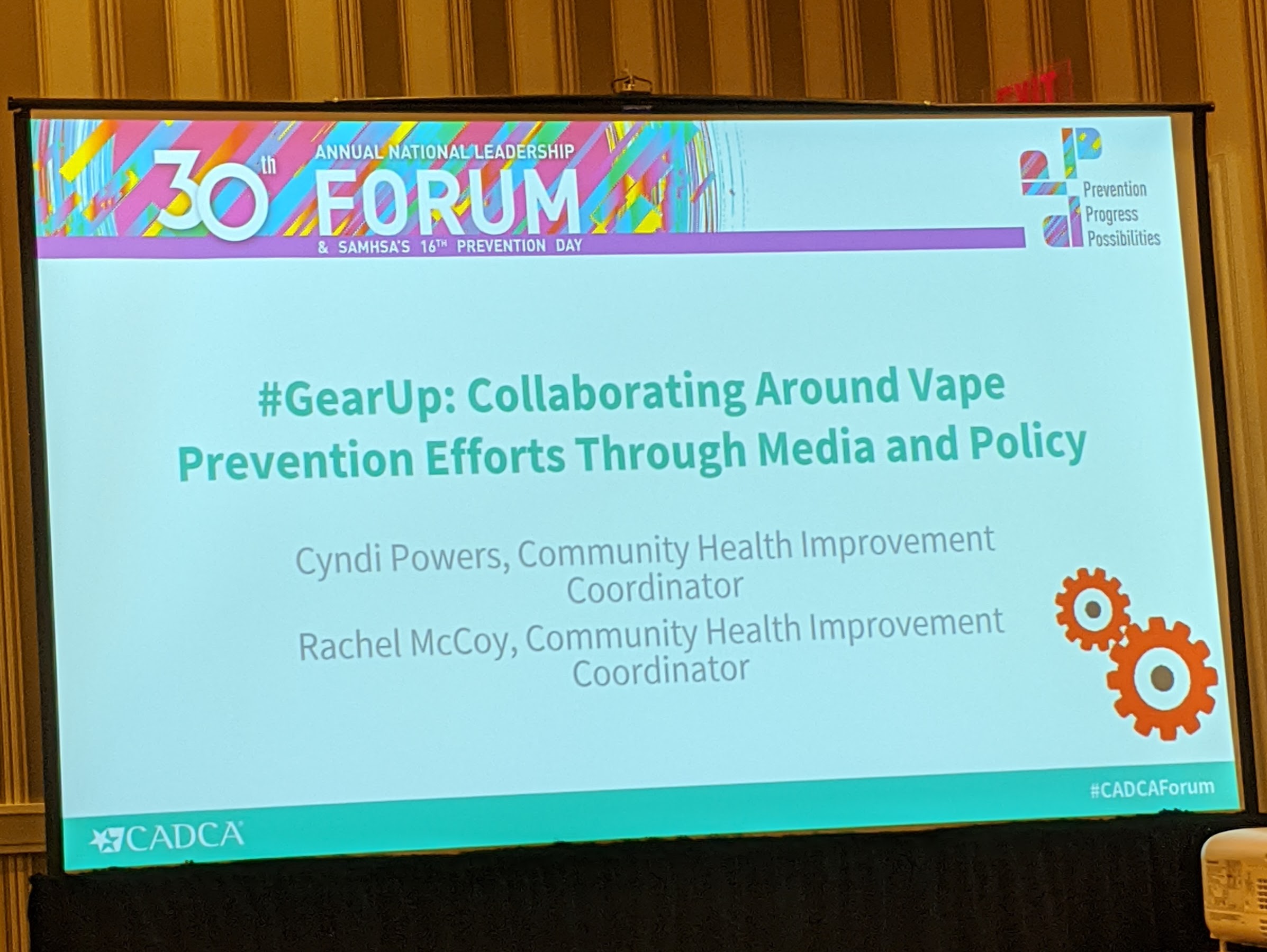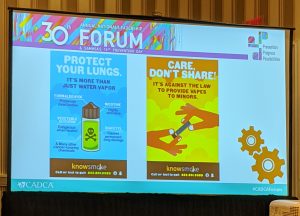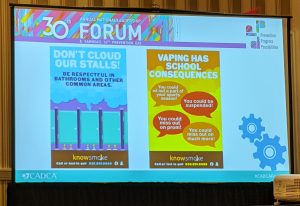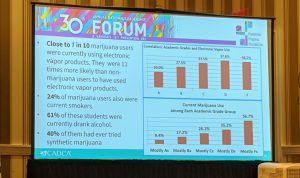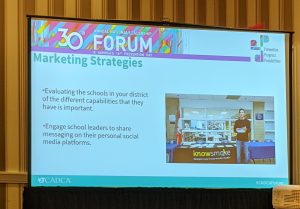Using Electronic Nicotine Delivery Systems (ENDS), commonly referred to as vaping, is an emerging trend among youth across the country, and community coalitions are working hard to address it. 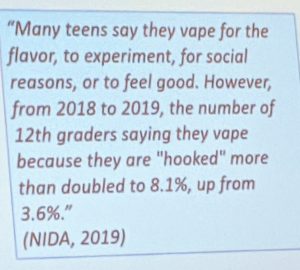 National data suggests that youth past 30-day use of nicotine delivered via vaping devices roughly doubled from 2017 to 2018. This session provided an overview of the strategies in which DFC grant recipients are engaging around vaping prevention, including collecting data on attitudes and use, engaging youth, and building capacity within the community to shed light on this new trend. During this session there an opportunity for participants to share ideas on how to address vaping in their local communities and to discuss emerging findings on the impacts of vaping on youth.
National data suggests that youth past 30-day use of nicotine delivered via vaping devices roughly doubled from 2017 to 2018. This session provided an overview of the strategies in which DFC grant recipients are engaging around vaping prevention, including collecting data on attitudes and use, engaging youth, and building capacity within the community to shed light on this new trend. During this session there an opportunity for participants to share ideas on how to address vaping in their local communities and to discuss emerging findings on the impacts of vaping on youth.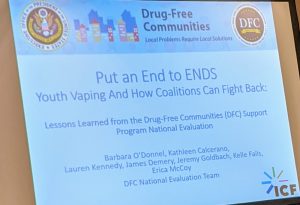
Yearly reports published each February by Drug Free Communities across the nation had an increase of 28% when mentioning youth vape use from 17% of all reports in 2018 to 47% of all reports in 2019. This type of growth is backed by the Monitoring the Future Survey.
Key Strategies to Adress Youth Vape Use
- Provide Information: providing information to youth, parents/guardians and adults who engage students at the school level will increase awareness of the dangers and risks associated with use.
- Enhancing Skills: providing youth with the skills to avoid use is an important step but also providing adults with the ability to inform and educate youth with facts is essential.
- Changing Policies/Consequences: changing disciplinary actions to match the changing landscape of vape use is key. Adding education components will provide students with the opportunity to be educated and informed regarding the decisions they make.
If you would like more information about ways you can address youth vape use please use the contact us form on the bottom of our homepage.

